Controversy
In 2009 Robinson forwarded an e-mail to his "Sociology of Globalization" course, to spur class discussion, that had photos of the 2008-9 Israeli assault on Gaza paralleling photos of the German occupation of the Warsaw Ghetto during the Second World War. The e-mail was widely circulated and became the subject of media controversy, after it was revealed that the Anti-Defamation League (ADL), a group generally considered to be pro-Israel, [4] advised university administrators to punish him. A Jewish student in the class brought a complaint against Robinson, that she was intimidated by the e-mail. The ADL criticized Robinson, considering the matter a case of academic misconduct, while California Scholars for Academic Freedom considered it a case of academic freedom and the charges without merit. [5] [6] Scholars for Peace in the Middle East, a pro-Israel group of academics, said that the incident had raised "serious questions about his judgment and the value of his teaching," and that "Concern for academic freedom does not justify or erase what is clearly and profoundly flawed pedagogy." [7] Robinson stated that his critics had confused his criticism of Israeli policies with anti-Semitism. "That's like saying if I condemn the U.S. government for the invasion of Iraq, I'm anti-American. It's the most absurd, baseless argument." [8]
University officials initiated an investigation of Robinson to probe the allegations that the email Robinson had forwarded to his class was inappropriate and in violation of the faculty code of ethics. The charges were dismissed in May 2009. [7]
Open Society Foundations (OSF), formerly the Open Society Institute, is a grantmaking network founded and chaired by business magnate George Soros. Open Society Foundations financially supports civil society groups around the world, with a stated aim of advancing justice, education, public health and independent media. The group's name is inspired by Karl Popper's 1945 book The Open Society and Its Enemies.
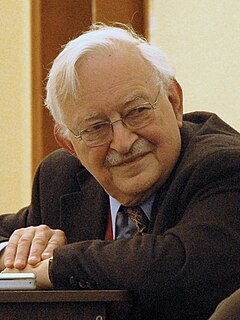
Immanuel Maurice Wallerstein was an American sociologist and economic historian. He is perhaps best known for his development of the general approach in sociology which led to the emergence of his world-systems approach. He was a Senior Research Scholar at Yale University from 2000 until his death in 2019, and published bimonthly syndicated commentaries through Agence Global on world affairs from October 1998 to July 2019.
In political science, the term polyarchy was used by Robert A. Dahl to describe a form of government in which power is invested in multiple people. It takes the form of neither a dictatorship nor a democracy. This form of government was first implemented in the United States and France and gradually adopted by other countries. Polyarchy is different from democracy, according to Dahl, because the fundamental democratic principle is "the continuing responsiveness of the government to the preferences of its citizens, considered as political equals" with unimpaired opportunities. A polyarchy is a state that has certain procedures that are necessary conditions for following the democratic principle.
Modernization theory is used to explain the process of modernization within societies. The "classical" theories of modernization of the 1950s and 1960s drew on sociological analyses of Karl Marx, Emile Durkheim and a partial reading of Max Weber, and were strongly influenced by the writings of Harvard sociologist Talcott Parsons. Modernization theory was a dominant paradigm in the social sciences in the 1950s and 1960s, then went into a deep eclipse. It made a comeback after 1991, when Francis Fukuyama wrote about the end of the Cold War as confirmation on modernization theory and more generally of universal history. But the theory remains a controversial model.
Transnationalism is a research field and social phenomenon grown out of the heightened interconnectivity between people and the receding economic and social significance of boundaries among nation states.

Empire is a book by post-Marxist philosophers Michael Hardt and Antonio Negri. Written in the mid-1990s, it was published in 2000 and quickly sold beyond its expectations as an academic work.

Giovanni Arrighi was an Italian economist, sociologist and world-systems analyst, from 1998 a Professor of Sociology at Johns Hopkins University. His work has been translated into over fifteen languages.

Matthias Küntzel, is a German political scientist and historian. He was an external research associate at the Vidal Sasson Center for the Study of Antisemitism (SICSA) at the Hebrew University of Jerusalem from 2004-2015. Currently, he is a member of the German Council on Foreign Relations DGAP, of the German Historical Association (VHD), of the Association for the Study of the Middle East and Africa ASMEA and of the Advisory Board of UANI.
Antony Loewenstein is an Australian German freelance investigative journalist, author and film-maker.
Antisemitism in universities has taken place in many countries at various times. Antisemitism has been manifested in various policies and practices, such as restricting the admission of Jewish students by a Jewish quota, or ostracism, intimidation or violence against Jewish students, as well as in the hiring, retention and treatment of Jewish staff. In some instances, universities have supported antisemitic government or social policies and condoned the development of antisemitic cultures on campus. In many jurisdictions, especially since World War II, discriminatory practices, including within the context of a university, are in breach of anti-discrimination laws, though antisemitic cultural values still persists on many campuses.
Valentine Moghadam is a feminist scholar, sociologist, activist, and author whose work focuses on women in development, globalization, feminist networks, and female employment in the Middle East.
The Association for Asian American Studies was founded in 1979 as the Association for Asian/Pacific American Studies. The name was changed in 1982. The organization was established to promote teaching and research in Asian American studies. Its other goals including advocacy and representation on behalf of Asian-Americans and educating American society about the history and aspirations of Asian American ethnic minorities.
James Petras is a retired Bartle Professor (Emeritus) of Sociology at Binghamton University in Binghamton, New York and adjunct professor at Saint Mary's University, Halifax, Nova Scotia, Canada who has published on political issues with particular focus on Latin America and the Middle East, imperialism, globalization, and leftist social movements.
The transnational capitalist class (TCC), also known as the transnational capitalist network (TCN), in neo-Gramscian and Marxian-influenced analyses of international political economy and globalization, is the global social stratum that controls supranational instruments of the global economy such as transnational corporations and heavily influences political organs such as the World Trade Organization.
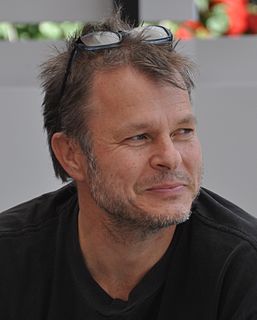
Teivo Teivainen is professor of World Politics at the University of Helsinki. Having received his PhD in 2000 at the University of Helsinki, Teivainen became the founding director of the Program on Democracy and Global Transformation at the National University of San Marcos, in Lima, Peru in 2003.

Stephen Gill, FRSC is Distinguished Research Professor of Political Science at York University, Toronto, Ontario, Canada. He is known for his work in International Relations and Global Political Economy and has published, among others, Power and Resistance in the New World Order, Power, Production and Social Reproduction, Gramsci, Historical Materialism and International Relations (1993), American Hegemony and the Trilateral Commission (1990) and The Global Political Economy: Perspectives, Problems and Policies.
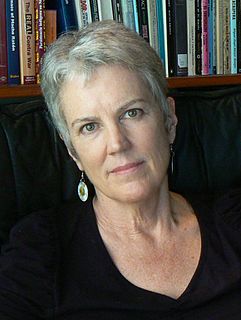
Virginia Tilley is an American political scientist specialising in the comparative study of ethnic and racial conflict. She is Professor of Political Science at Southern Illinois University-Carbondale in the US.
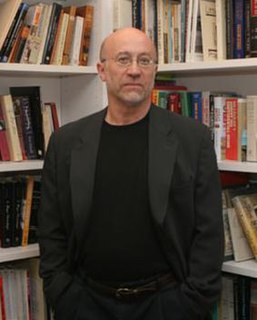
Tony Robert Judt was a British-American historian, essayist and university professor who specialized in European history. Judt moved to New York and served as the Erich Maria Remarque Professor in European Studies at New York University and director of NYU's Erich Maria Remarque Institute. He was a frequent contributor to The New York Review of Books. In 1996 Judt was elected a Fellow of the American Academy of Arts and Sciences and in 2007 a corresponding Fellow of the British Academy.
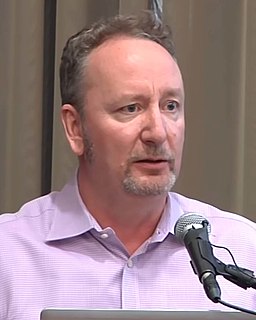
Mark McGann Blyth is a Scottish-American political scientist. He is currently the William R. Rhodes Professor of International Economics and Professor of International and Public Affairs at Brown University. At Brown, Blyth additionally directs the William R. Rhodes Center for International Economics and Finance at the Watson Institute for International and Public Affairs.

Racial capitalism is a concept reframing the history of capitalism as grounded in the extraction of social and economic value from people of marginalized racial identities, typically from Black people. It was described by Cedric J. Robinson in his book Black Marxism: The Making of the Black Radical Tradition, published in 1983, which, in contrast to both his predecessors and successors, theorized that all capitalism is inherently racial capitalism, and racialism is present in all layers of capitalism's socioeconomic stratification. Jodi Melamed has summarized the concept, explaining that capitalism "can only accumulate by producing and moving through relations of severe inequality among human groups", and therefore, for capitalism to survive, it must exploit and prey upon the "unequal differentiation of human value."










